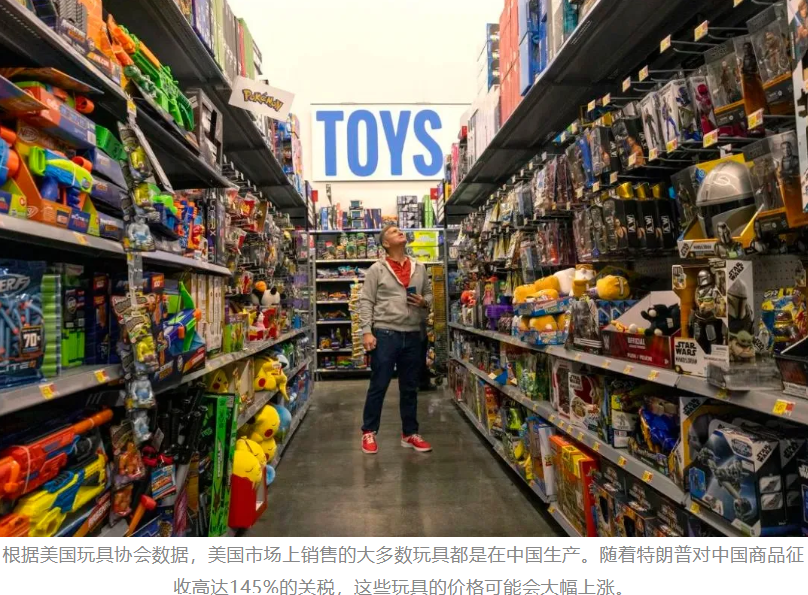Chinese-made dolls and toys have brought joy to children around the world. But as doll prices rise and toys run out of stock, what will American kids play with?
CNN recently reported that with President Trump imposing additional tariffs on China, the U.S. toy industry is facing unprecedented challenges.
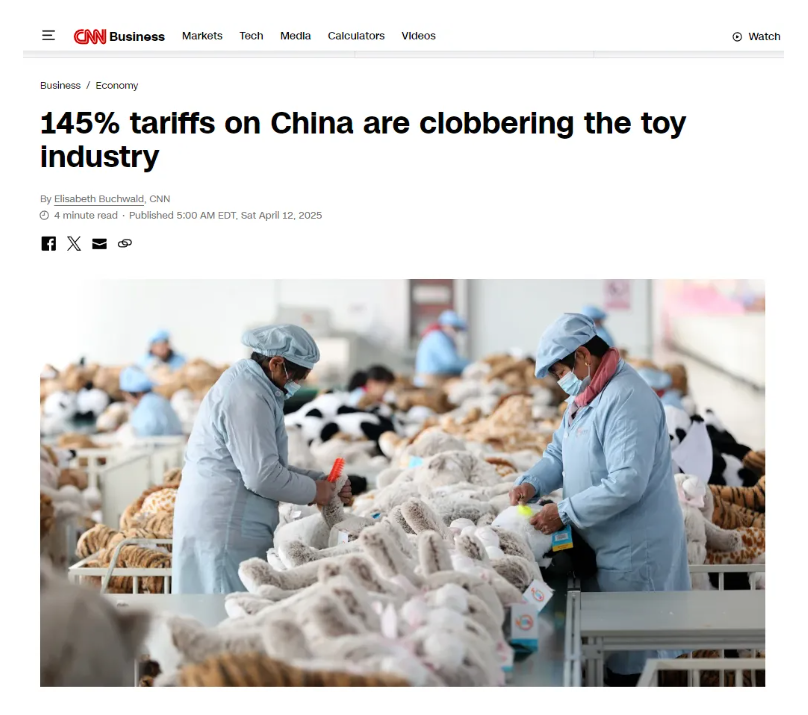
Now, goods from China are being tariffed at a whopping 145 percent rate.
For American families, this means relatively inexpensive toys could become luxuries. That's because nearly 80 percent of all toys sold in the US are manufactured in China, according to the Toy Association, a leading industry group.
"We have no choice but to raise prices by double-digit percentages," said Isaac Larian, CEO of California-based MGA Entertainment, whose company produces bestselling American toys including Bratz dolls and L.O.L. Surprise! series. "My life's work of 46 years is now hanging by a thread."
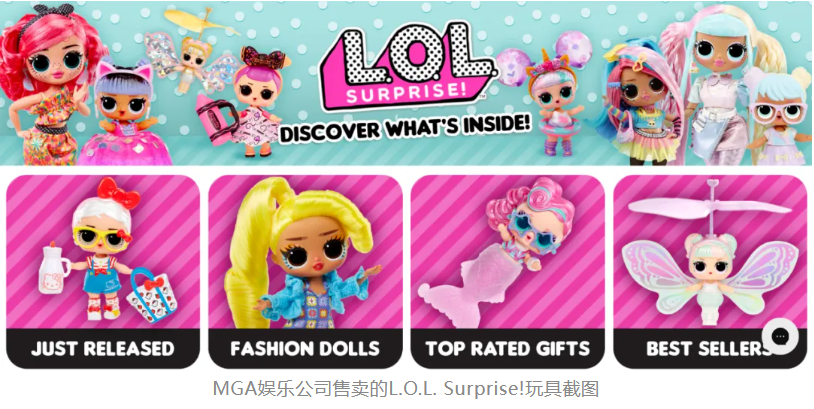
"What am I supposed to do? Start selling bald-headed dolls?"
Larian further noted that while the factory had the capacity to expand production, "Americans simply don't want to work in factories."
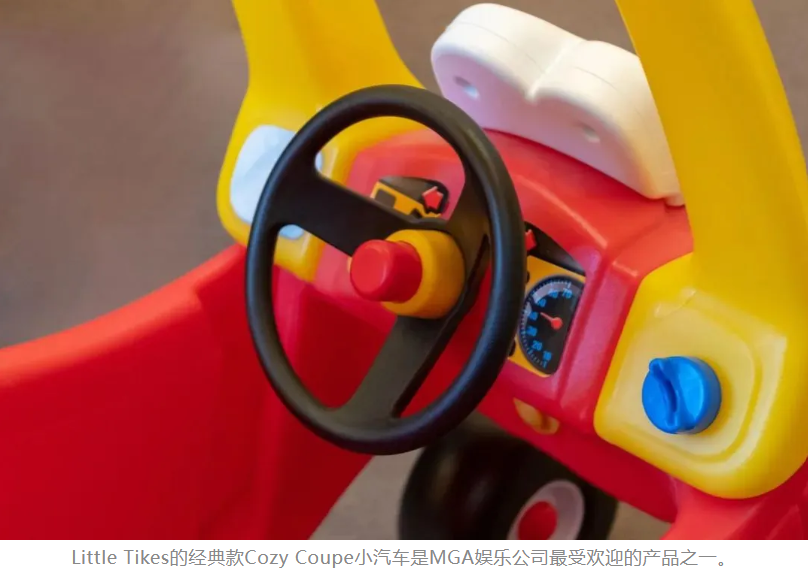
While the majority of MGA's production remains in China, its Ohio factory produces much of its Little Tikes line of goods, including toy cars and sandboxes. The facility could manufacture more toys, but Americans "do not want to work in factories," he said.
"There is no American factory anywhere that can make hair for dolls. What am I supposed to do? Sell bald dolls?" Larian said.
"NO ALTERNATIVE": CHINA REMAINS THE POWERHOUSE OF TOY MANUFACTURING
CNN's report highlights that while some industries have shifted supply chains away from China, the country remains the dominant source of U.S. toy imports. According to U.S. Department of Commerce data, America imported nearly 17.7billionworthoftoyslastyear∗∗,withabout∗∗7513.4 billion) originating from China.
"This goes back to the '80s and early '90s" when companies were scouting out lower-cost destinations to manufacture toys, said Greg Ahearn, president and CEO of The Toy Association.
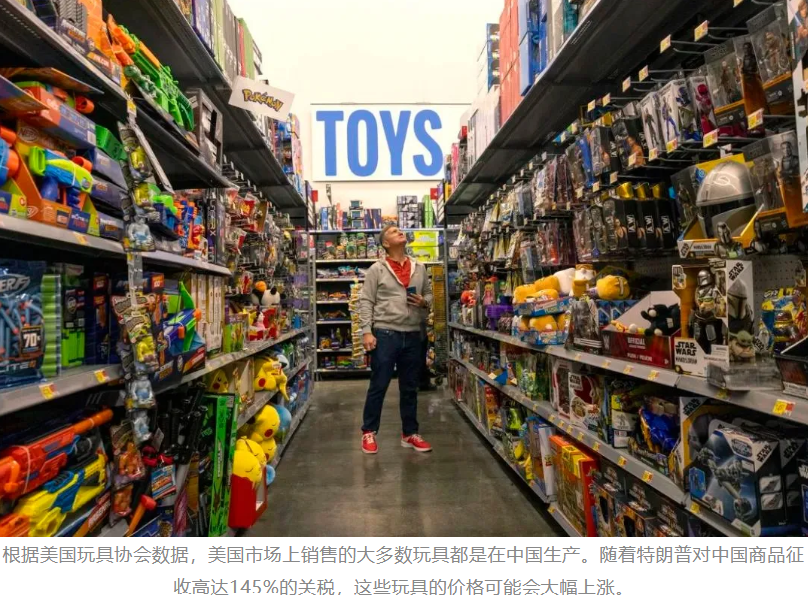
Moreover, many toy manufacturers are small businesses themselves. Ahearn pointed out that leveraging China's existing industrial infrastructure remains far more feasible for them than building factories from scratch in the U.S.
"There is no alternative in the short run. Yes, there is manufacturing that is done here in the US, but those are mainly things that can be highly automated," said Ahearn, who previously was the chief marketing officer at Toy "R" Us.
Basic Fun!, the toy company behind Care Bears and Tonka trucks, has its entire supply chain rooted in China, CEO Jay Foreman revealed in a February interview.
"Our tooling, our factory base, the consistency of production — and how do you just up and leave and go to another market?" Foreman said. "There are things you aren't able to make (in the US) physically, or produce here, and toys are one of those."
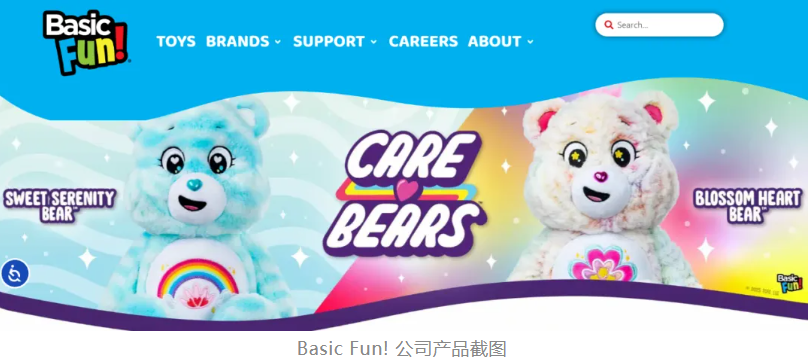
Speaking with CNN again after the 145 percent tariffs were enacted, he said: "The situation… has gone from a problem to a crisis for Basic Fun! and our entire industry. This threatens not only the price and amount of toys that will be in the market, but the actual survival of our industry."
It's a situation many toy companies are confronting, especially now when they'd otherwise place holiday season orders. The loss of revenue means several "may not be able to stay in business," Ahearn told CNN.
Basic Fun! has currently suspended all toy shipments, plunging the company into a potentially severe crisis.
"We can't afford the risk because we simply don't know what tariff rate will apply when our goods arrive," Foreman explained.
But at the same time, "If we have no products, we have no cash flow—which means we can't even pay our bills."


